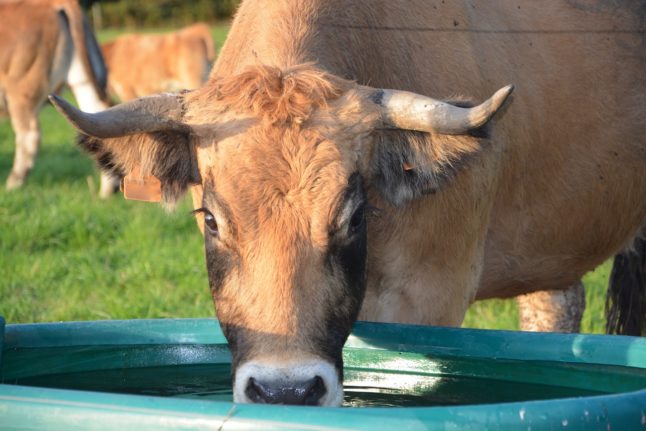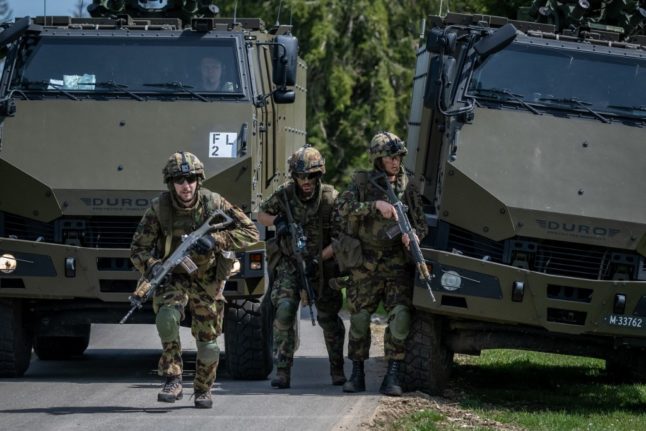As a neutral country, Switzerland plays an active role in conflict mediation. Its diplomats are well versed in the art of tactful negotiation and statesmanship.
But diplomacy is a fine-tuned skill and sometimes it is easy to trip.
This almost happened to Swiss Foreign Minister Ignazio Cassis .
On an official visit to Australia this week, he refused to accept a gift of chocolate from his counterpart, Penny Wong.
“If I took this, I wouldn’t be re-elected,” Cassis quipped.
Wong, however, insisted, saying, “It would be a diplomatic affront if you did not accept the gift.”
To persuade Cassis, she added that the chocolate comes from Australian manufacturer Haigh, whose grandson apprenticed at Lindt & Sprüngli in Zurich.
Cassis ultimately accepted the gift, but slipped a bag of Lindt chocolate into Wong’s hand in return: “You gave me the apprentice, I give you the master,” he said.

A diplomatic scandal was averted and the meeting ended on a sweet note.
Switzerland can breathe a collective ‘phew’.
But while this incident turned out to be non-threatening to Swiss – Australian relations (or each country’s chocolate industry), and everyone involved likely laughed it off, Switzerland has a history of other embarrassing faux-pas committed on the international arena.
These are some of them; all but one involved Switzerland’s army.
They all show that despite their neutral status, the Swiss are in the habit of invading their neighbours.
With France
There had been two such incidents in recent past (that is, not counting anything that might have occurred when Napoleon came to call in 1798), all of which were caused by Switzerland.
In 2015, during a particularly hot summer, Swiss cows had not enough water to drink.
So the Swiss military mobilised to airlift water to about 20,000 cows grazing on mountain pastures and to set up water tanks for the livestock.
However, instead of getting its supply from Swiss lakes, the army decided to fly, uninvited and unannounced, across the border to the small town of Les Rousses and ‘nab’ the water from their lake.
The incident spurred a bit of an outrage in France, where a newspaper claimed that “to save its cows, Switzerland steals water from France”.
While neutral Switzerland is not in a habit of sending its armed forces abroad (except in exceptional cases; read more about it below), the cows’ well-being was considered a good enough reason to peruse another country’s airspace — and its lake.
The army explained that Les Rousses’ lake was nearer the area where parched cows were located than any of Switzerland’s water sources.
And while Bern apparently sent a request to Paris to be allowed to fly over the French territory, the town’s official were left in the dark, even though their permission was required for the operation to take place.

The second time Switzerland entered France’s airspace without permission was in July 2022..
The current Swiss president Alain Berset (who was the Health Minister at the time), flew a small, single-engine plane into France, approaching a prohibited zone.
Despite being ordered by ground control to vacate the no-fly area, Berset, a licensed pilot, continued on his course, requiring an intervention by France’s Air Force — a military jet reportedly positioned itself near Berset’s, forcing him to land.
Once on the ground, Berset explained that he misunderstood the order to land, although the minister, originally from canton Fribourg, is a native French speaker.
Once on the ground, an identity check was carried out and Berset was able to leave.
Even though French president Emmanuel Macron was informed of the incident, no diplomatic repercussions followed
READ ALSO: Berset’s botched flight the latest in a long line of Swiss ‘invasions’
Liechtenstein
Liechtenstein lies very – and, it would seem, dangerously — close to Switzerland.
So you can’t really blame Swiss troops for inadvertently invading the tiny principality — not once or twice, but three times in the past 40 years.
The first incident happened in 1985. During a training exercise in the proper use of ground-to-air-missiles, Swiss artillery launched rockets straight into Liechtenstein, igniting a massive forest fire along with a diplomatic snafu.
At first, the Swiss claimed that strong winds, which were blowing in the region on that day, were to blame for the misdirected launch. But in the end, the government paid several million francs for damages inflicted on Liechtenstein’s forests.
Then, in 1992, Army recruits were on manoeuvres when they received orders to set up an observation post in Triesenberg. The soldiers obliged, until local residents started to ask what the Swiss military unit was doing in their town. It was only then that the recruits — and their commanders — realised that Triesenberg is located in Liechtenstein.
The third time, in 2007, 170 troops armed with rifles (but apparently not with a GPS) stumbled into Liechtenstein. They marched on for more than a kilometre until someone exclaimed, “Hey, this isn’t Switzerland”! (“Hey, das isch nöd d Schwiiz”)!
At this point the soldiers turned around and hot-footed it back home.
In all fairness, it is difficult to tell Switzerland apart from Liechtenstein, even in broad daylight. Rural areas in both countries look the same, and people in both nations speak the same Swiss German dialect and use Swiss franc as their currency.
Fortunately, the incident did not have any political repercussions.
“It’s not like they stormed over here with attack helicopters or something”, Markus Amman, Liechtenstein’s spokesman for the Interior, remarked at the time.
All these events could have had political consequences, but thankfully they didn’t.
Also thankfully, their haven’t tarnished Switzerland’s reputation as the global diplomacy hub.



 Please whitelist us to continue reading.
Please whitelist us to continue reading.
Member comments